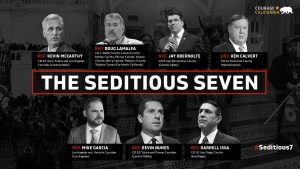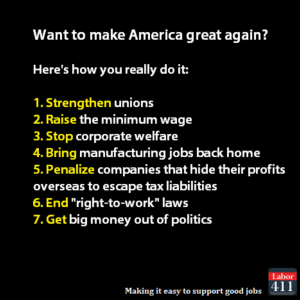The answer is pretty clear — they would have denounced it as treason. Article III of the Constitution limits the crime to “levying war against the United States” or “adhering to their enemies, giving them aid and comfort.” Adhering to enemies addresses aid to foreign nations or groups with whom the United States is in a state of open war. By contrast, “levying war” primarily addresses internal concerns. The Constitution’s drafters understood the term “levying war” to include any armed insurrection to obstruct a law of the United States. When tax protesters in western Pennsylvania attempted to resist the collection of federal excise taxes during the Whiskey Rebellion, President George Washington formed an army to fight them; his administration later indicted a number of the rebels for treason. A few years later, when men in eastern Pennsylvania used force to prevent the collection of a federal property tax, the John Adams administration prosecuted the leaders for treason. Supreme Court justices presiding over these trials all agreed treason had been committed. In 1842, Justice Joseph Story summarized the law, concluding it was treason “by force to prevent the execution of any one or more general and public laws of the government, or to resist the exercise of any legitimate authority of the government in its sovereign capacity.”
An armed attack on the Capitol to obstruct the counting of the electoral votes easily qualifies as treason under the framers’ original understanding of the Treason Clause. Indeed, the case is even stronger than it was in the Whiskey Rebellion and Fries’s Rebellion cases, none of which involved a direct attack on the national capital.
But in a perverse irony, the MAGA mob may be protected from a treason prosecution because of an 1851 case arising out of the Fugitive Slave Act. The Millard Fillmore administration prosecuted men in Pennsylvania who fought the return of enslaved people to captivity (and in the process killed Edward Gorsuch, a distant relative of current Supreme Court Justice Neil M. Gorsuch). Presiding over the trial, which was held in the second floor of Independence Hall in Philadelphia, Supreme Court Justice Robert Grier held that resistance to one particular law was not enough — treason by levying war requires a design to overthrow the government itself.
That’s where things get tricky. Grier’s decision has never been formally accepted (or repudiated) by the Supreme Court, but it seems likely that a federal court would follow it. Did the MAGA mob attempt to the overthrow the government of the United States, or did they just seek to obstruct one particular law (the Electoral Count Act)? A prosecutor could certainly argue it was an attempt on the government itself: The Electoral Count Act is not just any law. It’s about the peaceful transfer of power. And an attempt to thwart the certification of President-elect Joe Biden’s lawful accession to power through force looks very much like an attempt to overthrow the government itself. I have repeatedly written about the importance of not tossing the term “treason” around lightly. But of all the events of the last four years, this comes the closest to the framers’ understanding of the crime.
On the other hand, if treason charges ever went to trial, lawyers for the defendants would push Grier’s opinion for all it’s worth, insisting there was no intent to overthrow the United States government as such; they were simply protesting what they viewed, however benightedly, as a stolen election. The Constitution as it was interpreted in 1851, not the original Constitution of 1787, might then come in to save them.
But there are ample other criminal charges that can more easily be brought. Seditious conspiracy is an obvious fit. This statute prohibits, among other things, “two or more people” from conspiring to “by force to prevent, hinder, or delay the execution of any law of the United States, or by force to seize, take, or possess any property of the United States contrary to the authority thereof.” Seditious conspiracy carries a maximum penalty of 20 years in prison; it was most notably used recently to prosecute the 1993 World Trade Center bombers. The MAGA mob’s actions on Wednesday fit this statute to a T. Other criminal statutes, ranging from simple trespass to firearms offenses, will also come into play. District of Columbia police had arrested at least 52 people by Wednesday evening, mostly for allegedly carrying illegal weapons or violating the city’s emergency curfew.
No matter what charges are forthcoming later, one thing should be crystal clear: No person storming the Capitol to overthrow an election has any business claiming to be an heir to our country’s founders. George Washington, who laid the foundation of the Capitol building, would have viewed the attack as treason, even if modern law might not necessarily agree.





